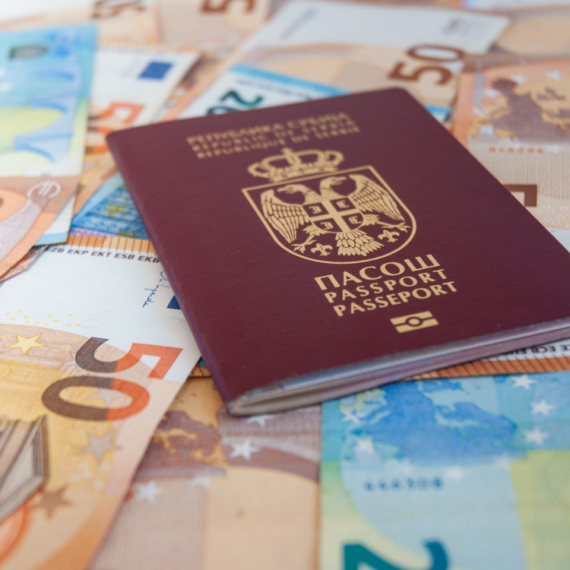MFA expresses "concern" over Caucasus
The Ministry of Foreign Affairs said this evening it is following the unfolding of events in the Caucasus with concern.
Tuesday, 26.08.2008.
17:18

The Ministry of Foreign Affairs said this evening it is following the unfolding of events in the Caucasus with concern. "The Republic of Serbia officials have continuously warned that the unilateral declaration of independence of Kosovo and Metohija, just as the recognitions of this illegal act, could have the nature of a precedent and destabilize other regions in the world," the statement, carried by Beta news agency, reads. MFA expresses "concern" over Caucasus The ministry continues that "it can be surmised, with regret, that these predictions have come true". "Official Belgrade respects international law and has a principled policy of preservation of sovereignty and territorial integrity of internationally recognized states, above all of the Republic of Serbia," the statement concludes. Difficult position Before the official Serbian reaction came, analysts were commenting Moscow's recognition of South Ossetia and Abkhazia and Belgrade's position in the crisis. Dusan Lazic, of the Forum for International Relations, said today that Russia’s move could put Serbia in a difficult position. He believes that Serbia could regret both following in Moscow’s footsteps, as it would go against its argument of territorial integrity, and staying aside, as it could get into its main Kosovo ally's bad books. Lazic however urges that Belgrade should not recognize South Ossetia and Abkhazia because it would be violating its own principled policy regarding Kosovo. “If Serbia continues taking steps, and as we know, it is doing so in the UN with its demand for an International Court of Justice opinion on Kosovo, I think that Serbia must consistently follow that line and not make any rash decisions, because the Russian stance is the same as Serbia’s in regards to Kosovo,” he said. In any case, this analyst believes, it is still possible that Moscow will call on Belgrade to recognize the independence of the breakaway Georgian republics. If that happens, Lazic said that the government will have to answer with solid arguments, explaining why it is not in Serbia’s best interest to recognize the violation of Georgia’s territorial integrity. “Since they are being linked in certain way, you cannot defend territorial integrity in one case and in the other case support self-determination and the proclamation of an independent country,” he continued. “Straying from that principled position is the best example of double, and triple standards, used by powerful countries in today’s international relations,” Lazic said. However, he does not expect that today's decision will change Moscow’s position on the Kosovo Albanians' unilateral declaration of independence. “Russia’s stance on Kosovo is a stance based on the interests of Russia, and it is primarily a message to Moscow's chief partners in the West, and those powers it is, if I may say, up against, in its international relations,” the analyst said. Before Russia took its stance that Kosovo's independence should not be recognized, they very successfully built in their own interests into that position. These interest haven’t changed, and I cannot think of why the Russian position would change now,” Lazic concluded. Ossetians celebrate (Beta)
MFA expresses "concern" over Caucasus
The ministry continues that "it can be surmised, with regret, that these predictions have come true"."Official Belgrade respects international law and has a principled policy of preservation of sovereignty and territorial integrity of internationally recognized states, above all of the Republic of Serbia," the statement concludes.
Difficult position
Before the official Serbian reaction came, analysts were commenting Moscow's recognition of South Ossetia and Abkhazia and Belgrade's position in the crisis.Dušan Lazić, of the Forum for International Relations, said today that Russia’s move could put Serbia in a difficult position.

Lazić however urges that Belgrade should not recognize South Ossetia and Abkhazia because it would be violating its own principled policy regarding Kosovo.
“If Serbia continues taking steps, and as we know, it is doing so in the UN with its demand for an International Court of Justice opinion on Kosovo, I think that Serbia must consistently follow that line and not make any rash decisions, because the Russian stance is the same as Serbia’s in regards to Kosovo,” he said.
In any case, this analyst believes, it is still possible that Moscow will call on Belgrade to recognize the independence of the breakaway Georgian republics.
If that happens, Lazić said that the government will have to answer with solid arguments, explaining why it is not in Serbia’s best interest to recognize the violation of Georgia’s territorial integrity.
“Since they are being linked in certain way, you cannot defend territorial integrity in one case and in the other case support self-determination and the proclamation of an independent country,” he continued.
“Straying from that principled position is the best example of double, and triple standards, used by powerful countries in today’s international relations,” Lazić said.
However, he does not expect that today's decision will change Moscow’s position on the Kosovo Albanians' unilateral declaration of independence.
“Russia’s stance on Kosovo is a stance based on the interests of Russia, and it is primarily a message to Moscow's chief partners in the West, and those powers it is, if I may say, up against, in its international relations,” the analyst said.
Before Russia took its stance that Kosovo's independence should not be recognized, they very successfully built in their own interests into that position. These interest haven’t changed, and I cannot think of why the Russian position would change now,” Lazić concluded.
























































Komentari 33
Pogledaj komentare